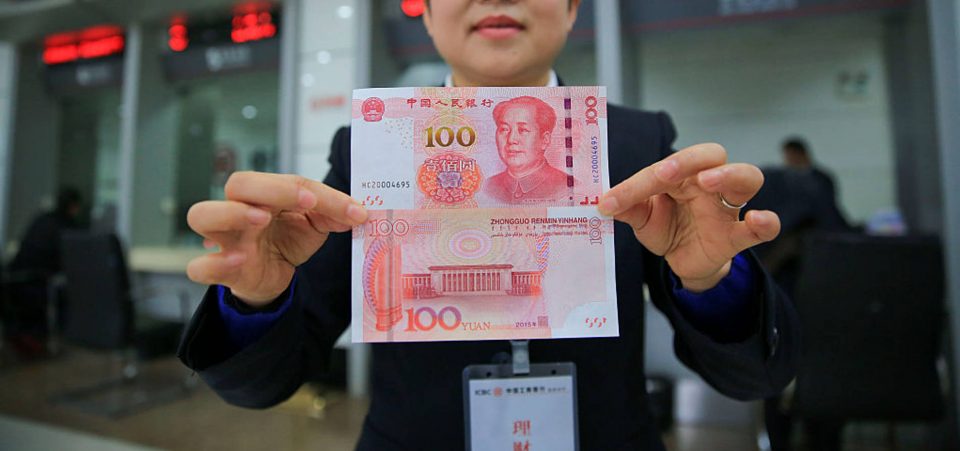The Yuan Loses to the Euro
The currency markets have demoted the yuan, China’s currency, to third place among the most-used currencies for international trade. The yuan, also known as renminbi, now ranks third among the most-used currencies for international trade.
The yuan has lost its second-place ranking to the euro, according to the international transaction provider SWIFT. (Source: “Cooling growth pulls China’s yuan down to third place in global trade finance: SWIFT,” Reuters, November 22, 2016.)
The general implication is that this drop in rankings reflects—or confirms—ongoing global economic collapse. Certainly, for the euro to overtake the yuan points to a fast and intense slowdown in China. (Source: Ibid.)
The yuan has also lost prestige compared to the Canadian dollar (CAD). The CAD has become the fifth-most-used world payment currency, pushing back the renminbi to sixth place.
Euro’s Rise in Rankings Compared to Yuan Was Unexpected
Europe and its currency are vulnerable now, facing pressure from the economy and from ever louder calls for the breakup of the European Union (EU). Donald Trump’s victory in the U.S. presidential election has helped weaken the EU. Trump’s win has given hopes to Europeans who have blamed the EU and the euro for their woes.
Trump has further widened the cracks, resulting from the Brexit earthquake last summer. The U.S. dollar has come close to parity with the euro. The United Kingdom has already abandoned Europe. More countries could follow in the next few months. Yet, despite the pessimistic indicators, the euro has not ceded all its influence just yet. Indeed, the euro achieved a significant victory over the yuan this week.
The yuan’s popularity in financing global trade has gone from 8.66% in 2014 to 4.61% today. Three years ago, the yuan ranked second only after the U.S. dollar. Since October 2013, global yuan-denominated trade has fallen by 66% in value. Taking all currencies in consideration, trade has dropped 35% in value terms. (Source: Ibid.)
The one conclusion from these statistics is that the yuan has lost its share of global trade, but the overall global economy has also suffered.
The yuan’s inclusion in the Special Drawing Rights (SDR) could generate more confidence in the Chinese currency and promote its internationalization. But the weaknesses of the EU could persist, preventing trade from growing at all. The renminbi has depreciated by more than five percent against the dollar this year alone. (Source: Ibid.)
This trend has only sped up after Americans elected Trump as president, which should raise alarm bells. Trump’s election has not only caused the yuan to drop and lose influence; the euro has fallen compared to the dollar. Trump’s imminent move to the White House has inevitably heightened political and economic worries in Europe.
The fact that a strong euro makes the EU less competitive—and vice-versa—should have favored the yuan. The yuan could have been the only currency to challenge the supremacy of the dollar in trade. The fact that it isn’t doing so testifies to the overall global economic weakness. China is afraid of falling into the Japanese trap. That is, allowing the yuan to gain so much value that its goods can no longer compete, as happened to the Japanese yen.
There is also the matter of China’s foreign exchange reserves of $3,300 billion. If the yuan were to gain too much against the U.S. dollar, it would spell disaster for China’s dollar-denominated assets. Therefore, if the yuan starts gaining, it will be because China feels confident about the global economy and its ability to dominate it. That’s when China will support a higher valuation and international profile for the yuan.






